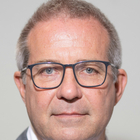New approaches to development cooperation in middle-income countries: brokering collective action for global sustainable development
Paulo, Sebastian / Stephan Klingebiel
Discussion Paper
(8/2016)
Bonn: German Development Institute / Deutsches Institut für Entwicklungspolitik (DIE)
ISBN: 978-3-88985-687-6
Preis: 6 €
In June 2013, the High-Level Conference of Middle-Income Countries held in Costa Rica, organised by the United Nations Industrial Development Organization (UNIDO), ventured an intriguing look into the future of development. In particular, the conference highlighted the role of networks in overcoming challenges for sustainable development and reshaping international cooperation in and with middle-income countries (MICs). With the choice of this topic, the conference has connected two issues that now figure prominently (and often separately) in the discussion on how to implement the new 2030 Agenda for Sustainable Development: networks and partnerships, on the one hand, and cooperation with MICs, on the other. As modes of governance, networks can be expected to become more important in MICs as their state bureaucracies and societies become more functionally differentiated. Similarly, the transformative change called for in the 2030 Agenda requires collective action among a broad range of public and private actors, within countries and across borders. Therefore, networks and partnerships have emerged as a central topic in the debate on “means of implementation” and a “revitalised global partnership”. Failure to meet this growing demand for collective action can lead to substantial implementation gaps. “Orchestration” has been advanced as a potential strategy to address collective action problems and support networks in various areas of sustainable development. This paper draws on the concept of orchestration to advance ideas for new approaches to cooperation in MICs. Orchestration can be used to broker collective action in and with MICs to support domestic reforms and global engagement in view of implementing the 2030 Agenda.
Weitere IDOS-Expert*innen zu diesem Thema

